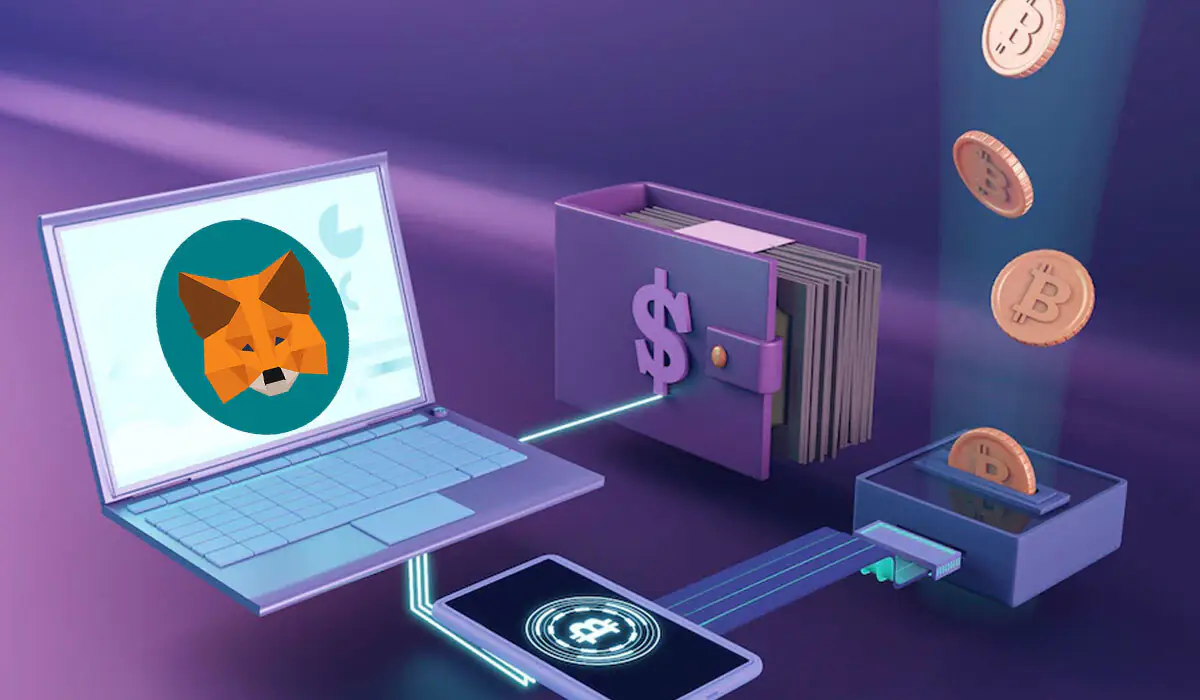Best Non-Custodial Bitcoin Wallet: Secure Your Crypto Sovereignty
Your search for the best non-custodial Bitcoin wallet ends today. You need full control over your coins, right? We’ll show just how to grab that control and never let go. Owning Bitcoin is not just about buying and selling. It’s about securing your digital cash like a pro. Get ready to understand why true crypto sovereignty means having your private keys in your hands. This isn’t just about choice; it’s about safety and smart crypto moves. We’ve got the scoop on top wallet options that offer tough security without the fuss. Whether you’re at your desk or on the move, your Bitcoin stays in your pocket, locked down but always ready for action. Let’s dive into the digital world where you call the shots, your keys – your coins. Let’s go!
Understanding Non-Custodial Bitcoin Wallets: A Path to Crypto Sovereignty
What is a Non-Custodial Bitcoin Wallet?
A non-custodial Bitcoin wallet gives you full control. Your keys, your coins. No bank or company holds them. You do. With it, you send, receive, and store Bitcoin on your terms. This is what crypto freedom looks like.
The Importance of Controlling Your Private Keys
Controlling your keys puts you in charge. If you don’t, others can access your Bitcoin. With a non-custodial wallet, that risk vanishes. You can back up keys and restore your wallet if needed. Keeping them safe, though, is all you. It means using strong passwords and secure storage methods.
Let’s dive deep. When you choose a non-custodial wallet, you embrace the heart of crypto: trustless freedom. Here’s where you champion autonomy in a digital world that often prefers to keep users on a leash. Cryptocurrency pioneers envisioned a system where you, and only you, have the power over your financial destiny. Non-custodial wallets embody this vision.
Think about “private key management.” It’s like the soul of secure Bitcoin storage. These keys? They’re like the keys to an uncrackable vault. And just as you wouldn’t leave your vault keys with a stranger, you don’t leave your digital keys with any ol’ service. It’s key to pick a wallet that aligns with these principles—an open-source Bitcoin wallet scores high here, for its transparency lets you see what’s under the hood, promoting trust.
And let’s chat about wallet encryption and safety. Encryption is a fancy word for “keep out” signs on your data. It scrambles information so only someone with the right key can unscramble it. Safety is non-negotiable. So, a top Bitcoin wallet for self-custody will have top-notch encryption.
What about choosing a Bitcoin wallet? Look beyond the shiny features. Consider strong points like multi-signature support or options for the best cold storage wallet. These aren’t just buzzwords. Multi-signature means multiple keys are needed to move your Bitcoin—think shared control for extra protection. And cold storage? It’s like deep freezing your assets in a place where hackers can’t meddle.
Mobile Bitcoin wallets have their place, but don’t forget about desktop bitcoin wallet options or hardware wallets for Bitcoin. These can enhance crypto wallet security even further. Especially hardware wallets—they’re like a fortress for your Bitcoin, disconnected from the internet.
Backing up your Bitcoin wallet is another pillar of control. Use a recovery phrase—a string of words that lets you restore your wallet if your device takes a bath. Store your seed phrase somewhere as safe as Fort Knox.
And fees—we all hate ’em. Thankfully, with most decentralized Bitcoin wallets, you won’t get dinged much for moving your own money.
In essence, if you’re aiming for crypto sovereignty and top-notch security, non-custodial wallets are your jam. They put the power in your hands. Happy self-governing!
Evaluating the Best Non-Custodial Wallets for Secure Bitcoin Storage
Factors to Consider in a Secure Bitcoin Wallet
When choosing a wallet, safety comes first. Look for strong crypto wallet security. This includes wallet encryption and safety. Think about how the wallet handles private key management. Your keys should only be yours. That’s what makes for secure bitcoin storage.
Consider user-friendly crypto wallets. They should be easy to use. If it’s too hard, what’s the point? Decentralized bitcoin wallets are great for this. They give you control and are often simpler to use.
Check if the wallet is open-source. Open-source bitcoin wallet means the code is out for anyone to check. This is good. It means more eyes are looking for bugs. Bugs are bad for security. So, more people looking is better.
Backup is vital. Ask, “Can I back up my bitcoin wallet easily?” The restore bitcoin wallet process must be clear. Don’t skip this. If something goes wrong, backups save your coins.
For seed phrase storage, clarity is key. Seed phrases are like your crypto lifeline. Lose it and you could lose your coins. The best cold storage wallet will keep this safe offline.
Multi-signature bitcoin wallets offer an extra layer of safety. It’s like having several locks on your door. The more, the safer.
Thinking of fees? Low bitcoin wallet transaction fees matter too. No one likes high fees.
Lastly, consider a hardware wallet for bitcoin. They’re often seen as the top bitcoin wallet for self-custody. They keep your keys offline. This is super safe.
Top Non-Custodial Wallet Options for Desktop and Mobile Users
Let’s talk about top wallet picks. For desktop bitcoin wallet options, Electrum is a choice many like. It’s open-source and secure. It’s not the newest, but it’s tested and strong.
For mobile bitcoin wallets, BlueWallet is a favorite. It’s got both simplicity and power. And it’s for everyday users. It handles user-friendly crypto wallets very well.
For a hardware wallet for bitcoin, many go for Trezor or Ledger. They’re trusted brands. They’ve proven their safety over time. And they keep improving their tech.
Cross-platform bitcoin wallets? Exodus wins a lot of hearts. It works on phones and computers. Plus, it’s pretty to look at.
Wrapping up, always control your own crypto assets. Wallets you control directly, like these, do just that. Use peer-to-peer bitcoin transactions for the true crypto feel. And remember, in crypto, trust no one but yourself. Choose your bitcoin wallet with care. Your future self will thank you.
Advanced Security Features of Non-Custodial Wallets: Safeguarding Your Digital Assets
Implementing Multi-Signature and Hardware Wallets for Enhanced Protection
Security in Bitcoin storage is crucial. Multi-signature and hardware wallets provide this. They require multiple keys for a transaction. This adds an extra security layer. It’s like needing several keys to open a bank vault—no single point of failure.

Hardware wallets store private keys offline. They are like secure USB sticks for crypto. When you use one, you plug it into your computer or phone. It signs transactions inside its secure environment. This means hackers can’t get your keys even if your computer is compromised.
Multi-signature (multi-sig) wallets need more than one key to make a transaction. You can set them up to need two out of three keys, for example. This is helpful for shared control over funds, like in a company or family. Even if someone loses a key, or it gets stolen, your Bitcoin stays safe.
For those on the move, mobile Bitcoin wallets offer convenience. But for enhanced security, combine them with hardware wallets. This keeps your keys offline even while using your phone.
When choosing a Bitcoin wallet, think about your needs. Do you value security over convenience, or vice versa? Choose a wallet that balances both as you see fit.
The Critical Role of Wallet Encryption and Recovery Seed Security
Encryption and recovery seed security keep your Bitcoin safe. Wallet encryption scrambles your wallet’s data. To access it, you need a strong password. Like a secret code, only you can crack.
Your recovery seed is a backup key. It’s a series of words you can use to restore your wallet. Think of it as your safety net. If your wallet gets lost or fails, this seed lets you get your Bitcoin back. Write it down and keep it in a safe place—never online.
Backing up your Bitcoin wallet is another must-do. It protects you against computer failures and mistakes. Setting up a Bitcoin wallet takes a little time. But it’s time well spent for the safety of your funds.
Restore your Bitcoin wallet using your recovery seed. If you lose your wallet, these words help you regain access to your Bitcoin. The restore process varies between wallets, but it’s often simple and guided.
Remember, you’re in control. Controlling own crypto assets means no middlemen. You handle your own security with these tools. Peer-to-peer Bitcoin transactions also need no intermediaries. It’s direct, from one person to another.
In sum, for secure Bitcoin storage, consider multi-signature and hardware wallets. They’re among the best cold storage wallet options. Don’t forget about encryption and seed phrase storage. They are key to your peace of mind in the crypto world.
Setting Up and Using Your Non-Custodial Bitcoin Wallet Effectively
Step-by-Step Guide to Setting Up a Non-Custodial Bitcoin Wallet
First, choose a bitcoin wallet. Look for trusted wallet brands. Consider options for your phone or computer. Next, download and install the wallet. Open-source wallets are a good pick – they’re like an open book. Everyone can see how they work.
Now, it’s time to set it up. Follow the wallet’s guide. It’s easy. You’ll create a new wallet on the app. Write down your recovery words. These words are your backup. Keep them secret, keep them safe.
After that, you will receive a wallet address. Use it to get bitcoin from others.
Important: Before you add any funds, practice sending a small bitcoin amount. Also practice restoring your wallet with the recovery words. Make sure you’ve got it right.
Best Practices for Backup and Restoration of Your Bitcoin Wallet
Back up your wallet. You must write down your seed phrase. A seed phrase has 12 to 24 words. Don’t store it on a computer or phone. Paper can be good, but metal is better. Why? It can survive fire and water.
Have more than one backup. Keep them in different places. Think about using a safe or a safety deposit box.
Restoring a wallet? You’ll need your seed phrase. Enter the words into a new wallet app. This should bring back your funds.
Remember to protect your backups from other people. When you back up your seed phrase, do it alone. This way, no one else sees your words. This is part of private key management.
Set up a strong password for wallet access. And for big amounts of bitcoin, consider a hardware wallet for extra security.
Encryption is your friend. It keeps your wallet files hidden from thieves. Use it to lock down your crypto.
If you’re using a mobile bitcoin wallet, update it often. Updates fix bugs and improve security. Check for wallet updates on your app store or the wallet’s website.
Keep software on your devices up to date too. This helps in stopping hackers. They look for old software to break into systems.
Remember, you control your bitcoin. So, take care of your wallet. No one else will. Your money, your responsibility.
Controlling own crypto assets can feel like a big task. But with these steps, you can keep your bitcoin secure. Using a non-custodial wallet gives you freedom. It lets you handle your money without a middle man. Be your own bank. Keep learning, stay safe, and use your wallet wisely.
We’ve covered a lot about non-custodial Bitcoin wallets. They let you fully own your crypto keys. This is crucial for your digital cash safety. With these wallets, you’re in full control, not a third party.
When picking a wallet, think about safety, ease of use, and backup features. Both desktop and mobile options offer great security. Remember to look at well-known wallets that fit your needs.
For even tighter security, think about using multi-signature and hardware wallets. Don’t forget to encrypt your wallet and safely store your recovery seed.
Finally, we walked through setting up your wallet and how to keep it safe. Always back up your wallet and know how to restore it if needed.
Owning your crypto keys means taking responsibility for your Bitcoin’s safety. By understanding and using non-custodial wallets right, you can make sure your digital assets are secure. Keep these tips in mind and you’ll be well on your path to crypto sovereignty. Follow Crypto Market Pulse to update more knowledge about Crypto.
Q&A :
What are the top features to look for in the best non-custodial Bitcoin wallet?
Non-custodial Bitcoin wallets are popular for those who wish to have full control over their keys and funds. When choosing the best non-custodial Bitcoin wallet, it’s important to consider the following features: robust security measures such as two-factor authentication (2FA) and multi-signature support, an intuitive user interface, compatibility with various operating systems and mobile devices, the ability to control network fees, and support for multiple cryptocurrencies if you are interested in more than just Bitcoin. Additionally, the wallet should provide a backup and recovery mechanism to protect your assets in case of device loss or failure.
How do non-custodial wallets ensure the security of my Bitcoin?
Non-custodial wallets give users complete control over their Bitcoin by allowing them to manage their private keys directly. This means that rather than trusting a third party to secure your funds, you are responsible for your wallet’s security. Most non-custodial wallets are built with strong security features such as encrypted private keys, secure PIN codes, and backup options for key recovery, such as seed phrases. Some wallets also include advanced security features like hardware wallet integration and compatibility for an extra layer of protection. Always remember that security also depends on the user’s practices, like keeping the backup seed phrase safe and not sharing private keys.
Can I use my non-custodial Bitcoin wallet on multiple devices?
Yes, most non-custodial Bitcoin wallets are designed to be accessible across multiple devices. This is typically achieved through the use of a seed phrase, which can be used to restore your wallet on any compatible device. However, you should ensure that each device is secured and that you are following best practices for wallet management. It’s important to verify if the wallet you choose supports cross-device synchronization and whether there are any specific steps required to safely set up the wallet on additional devices.
Are there any fees associated with using a non-custodial Bitcoin wallet?
Non-custodial Bitcoin wallets themselves do not typically charge fees for simply using the wallet. However, users incur network fees when sending Bitcoin or other cryptocurrencies to another address. These fees go to the miners or validators of the blockchain network, not the wallet itself. Some non-custodial wallets allow users to set custom transaction fees, which can be useful during periods of lower network congestion to reduce costs. Always be aware that setting fees too low can result in slower transaction confirmation times.
How can I recover my non-custodial Bitcoin wallet if my device is lost or damaged?
Recovering a non-custodial Bitcoin wallet after a device is lost or damaged relies on your preparedness. When setting up your wallet, you are typically provided with a seed phrase – a series of words that store all the information needed to recover your wallet. It is vital to write down and securely store this seed phrase in a safe place, separate from your device. If your device is compromised, you can use this seed phrase on a new device to restore access to your wallet and funds. Be sure never to share your seed phrase with anyone to avoid potential theft.




